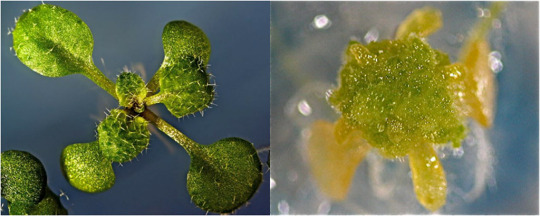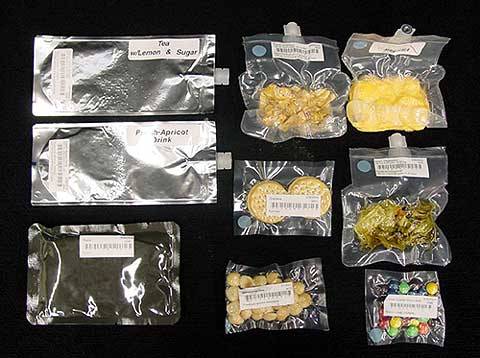For Some Reason, I Had Never Bothered To Research The History Of My Little Blue Inhaler, And I Can’t
For some reason, I had never bothered to research the history of my little blue inhaler, and I can’t believe how many models there have been.
From steam tents to cigarettes, from coffee to formulas that contain 3.5% cocaine, treatments and asthmatic equipment has come such a long way.
My dad once told me that back when he was a kid, the area where he grew up did not fully understand the cause of asthma, and believed that he was faking his attacks. He told me that his doctor would tell him that asthma was caused by ‘stale air’ in the lungs and that he needed to get rid of the air by lying to the side and patting the side of his ribs.
More Posts from Heyitsmaye and Others

It’s funny to think that back in the middle ages, having surgery was likened to going to the barber for a hair cut.
This was because surgeons were seen as lower class, whereas physicians usually served those in the court and in castles.
I found this strange because now you wouldn’t see a surgeon operating at the hair dressers, as they are now regarded as very important people in the medical world.
Barber surgeons did not have to study at universities, whereas physicians were accredited and licenced.
Through this, medicine played a role in the separation of upper and lower classes in the middle ages as only the upper class were ‘worthy’ of licenced medical services.
Past projects? Similar concepts?
During specialism, I have explored the concept of healing by sharing my experience in hospital due to having frequent asthma attacks in the Radio project. I found the medium of sound very effective when telling my experience as there are so many sounds relating to the hospital and sickness in general. There is also the unmistakable inhaler sound that is very specific to asthma. I wish to build upon this project during FMP by interviewing my parents not only because I cannot recall most of what happened, but also gives an insight into what it was like from their perspective.
Although I had difficulty with it at first, I wish to utilise stop motion animation in my FMP because it creates the more character and materiality than digital animation. I feel like digital animation would suit the more impersonal areas, where as the materiality is needed to create more personal details.
I wish to also somehow incorporate rubber stamping as again, it’s material nature would lend itself quite well in the subject.

Believing Is Seeing
By far, my favourite project yet. I honestly really enjoyed building the logistics of my own world and translating what it looks like in my head onto paper. Illustrating what my world felt like really helped me to visualize the atmosphere I was trying to create.
My quote was “The tawny field of burnt grass led into the tight grid of the mysterious buildings”. To me ‘tight grid’ and ‘burnt grass’ implied something sinister and restrictive, so for some reason my brain said “ah, yes this is a cult”. I researched the psychology behind a cult environment, and how emotional blackmail is used to control members. I watched interviews and ted talks about people who escaped cults, including Rose Mcgowan. After having a tutorial with Sarah, I decided to present my world in a less sinister manner, and leave it up to the audience to decided whether this was a cult or a close knit community.
When putting together the diary I enjoyed illustrating things that are not visual, for example the sound of a creaking door, or the feeling of paranoia.
I had fun writing the script for the interview because I was able to show off my research. The aim was to create a character who had just been exiled from a cult, who to her was essentially her family. Although I’m not exactly a voice actor, I tried my best to communicate the character’s vulnerability and nativity. Ryan however, did a great job as an interviewer with what he had. I literally just sent him a script and said can you record yourself saying this please.
I was frustrated with after effects. Everything was taking so long to render because my laptop isn’t really built for adobe software. My doors didn’t really come out the way I wanted but I guess it looked cool.
Improvements:
- Play around with the font and positioning of the text
- Make the script of the interview more ambiguous, cut out the end part
- somehow make the visuals of the doors match the diary so that it looks like it’s from the same world
- make something visual for the interview

Let’s Talk About Food...in Space!
It’s Thanksgiving time…which means you’re probably thinking about food…
Ever wonder what the astronauts living and working on the International Space Station eat during their time 250 miles above the Earth? There’s no microwave, but they get by using other methods.
Here are some fun facts about astronaut food…

Astronauts are assigned their own set of silverware to use during their mission (they can keep it afterward too). Without a dishwasher in orbit, they use special wipes to sterilize their set between uses, but it’s still better for everyone if they keep track of and use their own! So many sets of silverware were ordered during the space shuttle program that crews on the space station today still use silverware engraved with the word “shuttle” on them! So #retro.

You probably know that astronauts use tortillas instead of bread to avoid crumbs floating everywhere. Rodolfo Neri Vela, a payload specialist from Mexico, who flew on the space shuttle in 1985, introduced tortillas to the space food system. Back then, we would buy fresh tortillas the day before launch to send on the 8-10 day space shuttle missions.

We then learned how to reduce the water activity when formulating tortillas, which coupled with the reduction of oxygen during packaging would prevent the growth of mold and enable them to last for longer shuttle missions. Now, we get tortillas from the military. In August 2017, acting NASA Administrator Robert Lightfoot ate a meal that included tortillas from 2015!

Our food menu is mostly all made from scratch so it can meet the requirements of the nutrition team and ensure astronauts eat enough fruits and vegetables. The space station is stocked with a standard menu that includes a mix of the more than 200 food and drink options available. This ensures lots of variety for the station crews but not too many of each individual item.

The food is packaged into bulk overwrap bags, referred to as BOBs, which are packed into cargo transfer bags for delivery to the space station. Each astronaut also gets to bring nine personalized BOBs for a mission, each containing up to 60 food and drink options so they can include more of their favorites – or choose to send a few specific items for everyone to share on a particular holiday like Thanksgiving. As a result, the crew members often share and swap their food to get more variety. Astronauts also can include any food available at the grocery store as long as it has an 18-month shelf life at room temperature and meets the microbiological requirements.

Fresh fruit and vegetables are a special treat for astronauts, so nearly every cargo resupply mission includes fresh fruit and veggies – and sometimes ice cream!

The Dragon spacecraft has freezers to bring science samples back to Earth. If there is space available on its way to orbit, the ground crew may fill the freezer with small cups of ice cream or ice cream bars.

Some food arrives freeze-dried, and the astronauts rehydrate it by inserting a specific amount of hot or ambient water from a special machine.
Other food comes ready to eat but needs to be reheated, which crew members do on a hot-plate like device. We recently also sent an oven style food warmer to station for the crew to use. And of course, some food like peanuts just get packaged for delivery and are ready to eat as soon as the package is opened!

Our nutritional biochemists have discovered that astronauts who eat more fish in space lost less bone, which is one of the essential problems for astronauts to overcome during extended stays in space. In the limited area aboard the space shuttle, not all crew members loved it when their coworkers ate the (aromatic) fish dishes, but now that the space station is about the size of a six-bedroom house, that’s not really a problem.

Astronauts on station have had the opportunity to grow (and eat!) a modest amount of fresh vegetables since the first lettuce harvest in August 2015, with new crops growing now and more coming soon. Crew members have been experimenting using the Veggie growth chamber, and soon plant research will also occur in the new Advanced Plant Habitat, which is nearly self-sufficient and able to control every aspect of the plant environment!
Growing food in space will be an important component of future deep space missions, and our nutritionists are working with these experiments to ensure they also are nutritious and safe for the crew to eat.
Thanksgiving in Space

The crew on the space station will enjoy Thanksgiving together. Here’s a look at their holiday menu:
Turkey
Mashed Potatoes
Cornbread Stuffing
Candied Yams
Cran-Apple Dessert
Learn more about growing food on the space station HERE.
Make sure to follow us on Tumblr for your regular dose of space: http://nasa.tumblr.com.









